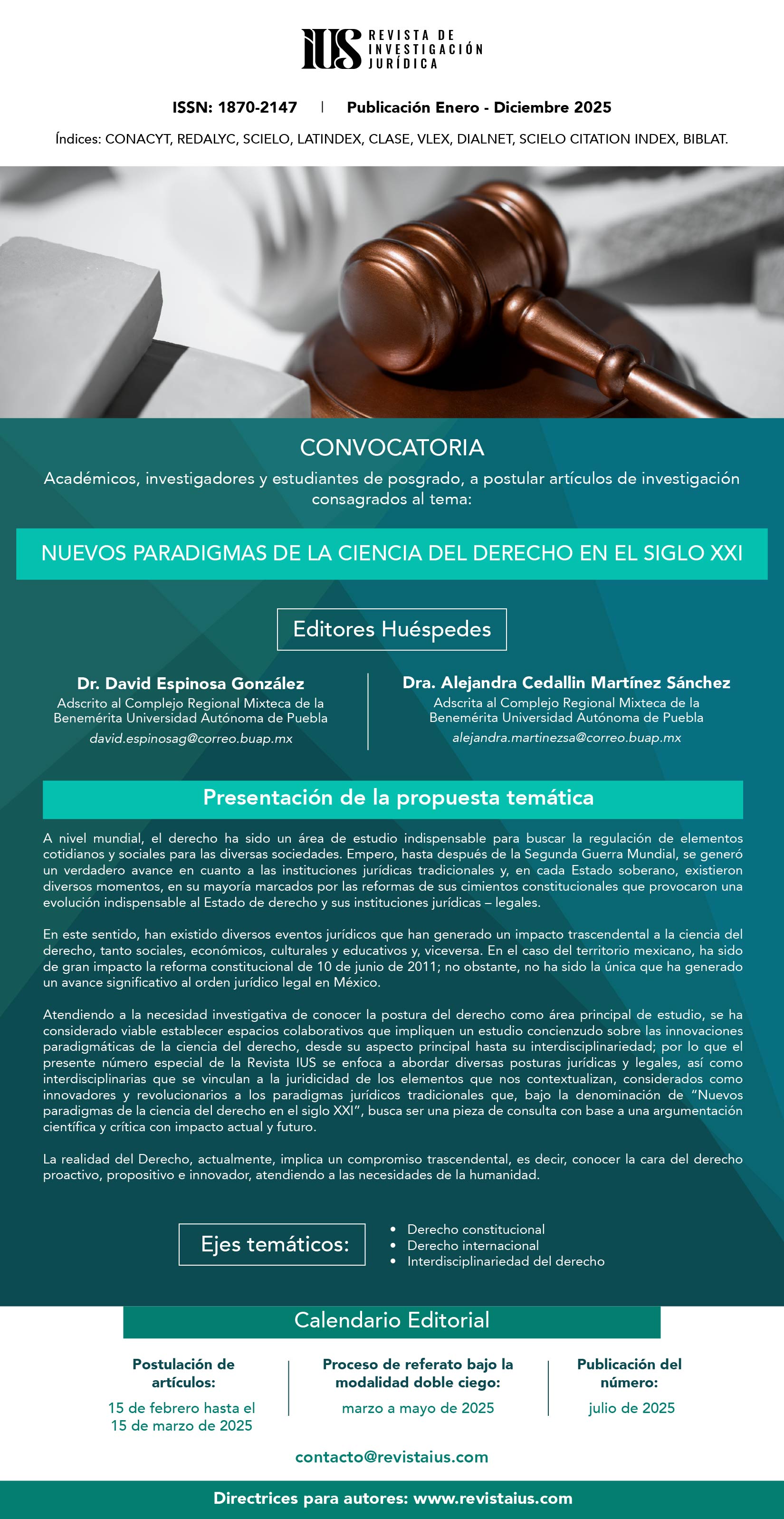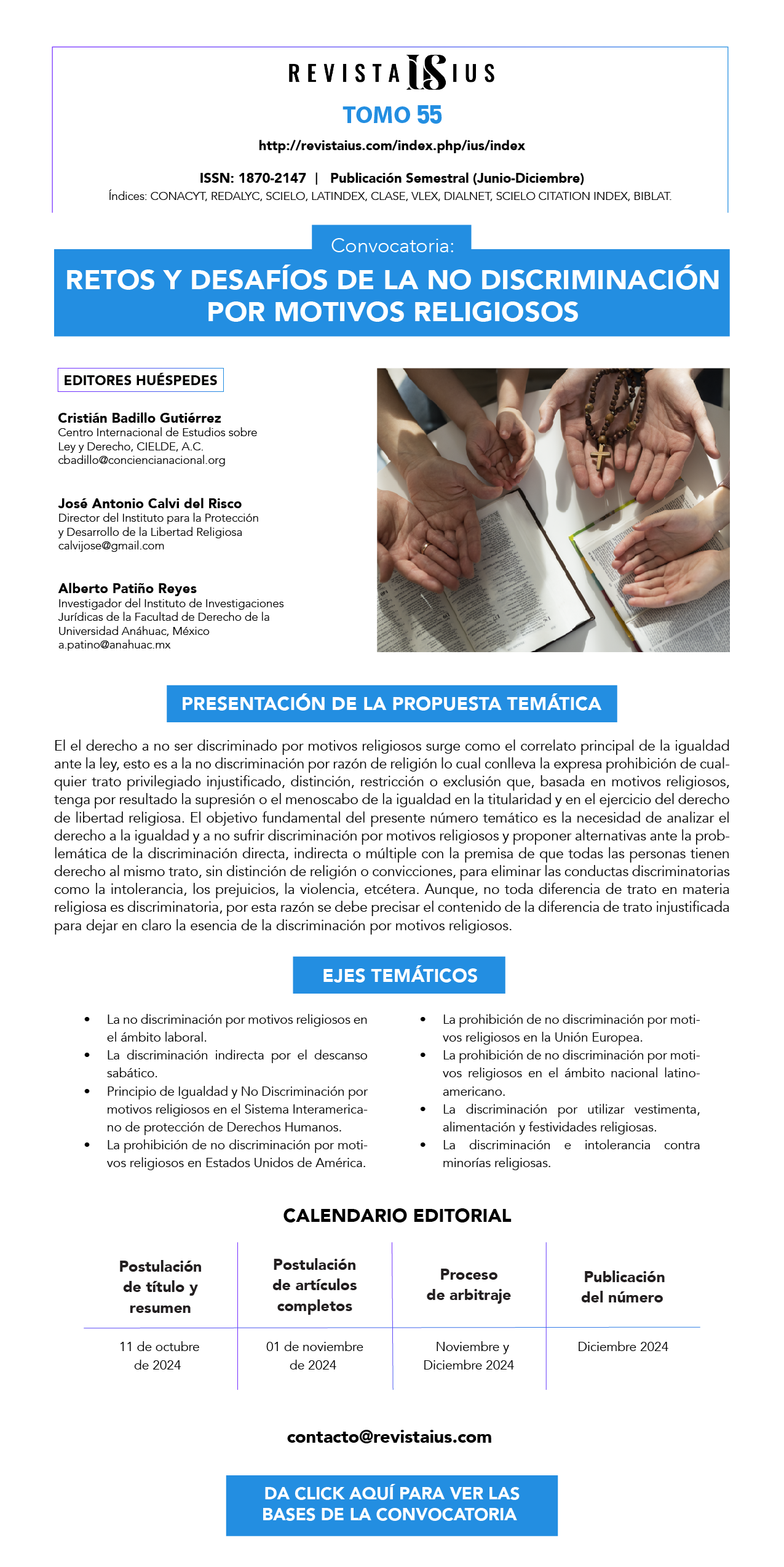Business and Privacy: The Safekeeping of Information and Personal Data in Digital Media
DOI:
https://doi.org/10.35487/rius.v12i41.2018.313Keywords:
Law, Privacy, Company, Information, Personal Data, Digital Media.Abstract
Technology as a research topic is broad. Focusing on aspects of a business unlocks an unlimited range of legal and technical issues that require care and attention to its possible legal consequences. The modern company, inserted in the society of information and knowledge, constantly changes and evolves and adapts to that technical and legal swing that inevitably subjects it. An important issue faced by all types of corporations, small, medium or large, is the daily use of digital media to process, distribute or store any kind of information in an electronic device. This activity, so necessary at present, continues to facilitate the entrepreneur all kinds of processes. However, the company is vulnerable to technical and legal risks related to the protection of privacy of information and personal data of its members. Privacy involves a series of situations related to the personal and individual status of each individual, so it is important to analyze some of them to determine the extent to which the rights and obligations that affect each of the parties involved in a business context.Downloads
References
ÁLVAREZ CARO, M. Derecho al Olvido en Internet: El nuevo paradigma de la privacidad en la era digital. Ed. Reus, Madrid, 2015.
CLAYPOOLE, T. y PAYTON, T.M. Privacy in the Age of Big Data. Recognizing Threats, Defending Your Rights, and Protecting Your Family. Ed. Rowman & Littlefield, United Kingdom, 2014.
Código de Comercio, México, 13 de diciembre de 1889, Diario Oficial de la Federación: 2 de mayo de 2017. [Consultada 8 de mayo de 2017]. [Disponible en: http://www.diputados.gob.mx/LeyesBiblio/index.htm].
Constitución Política de los Estados Unidos Mexicanos, México, 5 de febrero de 1917, Diario Oficial de la Federación: 24 de febrero de 2017. [Consultada 24 de abril de 2017]. [Disponible en: www.diputados.gob.mx/LeyesBiblio/index.htm].
Convenio para la Protección de los Derechos Humanos y de las Libertades Fundamentales, Roma 1950. Boletín Oficial del Estado (BOE) No. 243: 10 de octubre de 1979. [Consultada 20 de febrero de 2017]. [Disponible en: http://www.derechoshumanos.net/Convenio-Europeo-de-Derechos-Humanos-CEDH/index.htm].
CORTINA, A. Construir confianza. Ética de la empresa en la sociedad de la información y las comunicaciones, Ed. Trotta, Madrid 2003.
CRAIG, T. y LUDLOFF, M.E. Privacy and Big Data. Ed. O´Reilly, Sebastopol, CA, 2011.
DRUMMOND, V., Internet, Privacidad y Datos Personales, Ed. Reus, Madrid 2004.
ELECTRONIC COMMUNICATION PRIVACY ACT (ECPA), U.S. Department of Justice, 2016. [Consultada 27 de marzo de 2017]. [Disponible en: https://it.ojp.gov/privacyliberty/authorities/statutes/1285].
Ley Federal de Protección de Datos Personales en Posesión de Particulares, México, 5 de julio de 2010. Diario Oficial de la Federación: 5 de julio de 2010. [Consultada 4 de abril de 2017]. [Disponible en: http://www.diputados.gob.mx/LeyesBiblio/index.htm].
NOLAN, C. y WILSON, A. The Audacity to Spy. How Government, Business and Hackers Rob Us of Privacy. Ed. Technics Publications, Basking Ridge, N.J. 2014.
Norma Oficial Mexicana, NOM-151-SCFI-2016, México, 30 de marzo de 2017. Diario Oficial de la Federación: 30 de marzo de 2017. [Consultada 8 de mayo de 2017]. [Disponible en: dof.gob.mx/nota_to_doc.php?codnota=5478024].
PÉREZ LUÑO, A.E. Nuevas tecnologías y derechos humanos, Ed. Tirant lo Blanch, Valencia 2014.
SOLOVE, J. D. The Digital Person. Technology and Privacy in the Information Age. New York University Press, 2004.
STEFIK, M. The Internet Edge. Social, Technical, and Legal Challenges for a Networked World. The Digital Keyhole: Privacy Rights and Trusted Systems. MIT Press, Massachusetts Institute of Technology, 2000.
WARREN, S. y BRANDEIS, L. The Right to Privacy. Boston, United States of America: Harvard Law Review 193. 1890. [Consultada 20 de febrero de 2017]. [Disponible en: http://faculty.uml.edu/sgallagher/Brandeisprivacy.htm].
Downloads
Published
Issue
Section
License
Revista IUS, published by the Legal Sciences Institute of Puebla A.C., is distributed under the Creative Commons Attribution-NonCommercial 4.0 International (CC BY-NC 4.0) license.
We authorize collaborators to upload a copy of their published work on their personal websites or any Open Access repository, provided that Revista IUS is specifically cited as the original source, indicating the year and issue of the respective example and adding the link to the webpage on which this publication can be freely consulted in toto and without charge: http://www.revistaius.com
Readers are free to:
Share, copy and redistribute the material via any medium or format.
The licensor cannot revoke these freedoms as long as you follow the license terms.
Under the following terms:
Attribution: You must give appropriate credit, provide a link to the license, and indicate if changes were made.
You may do so in any reasonable manner, but not in any way that suggests the licensor endorses you or your use.
NonCommercial – You may not use the material for commercial purposes.
If you remix, transform or build upon the licensed material, its distribution is not permitted.
Charges for managing articles: Revista IUS will not charge for receiving, processing or publishing articles (Article Processing Charge, or APC) submitted by authors.





